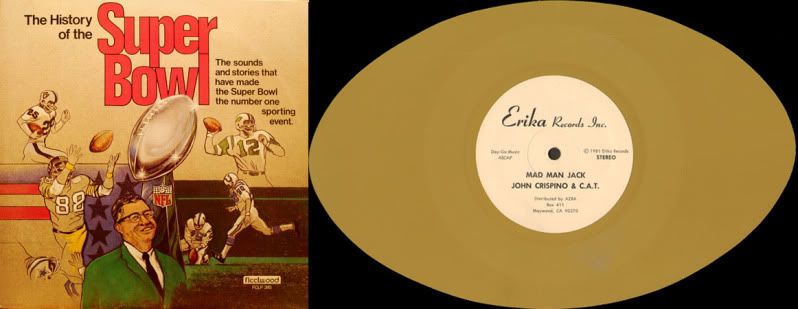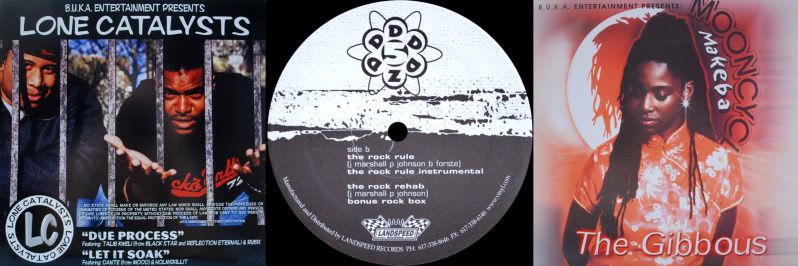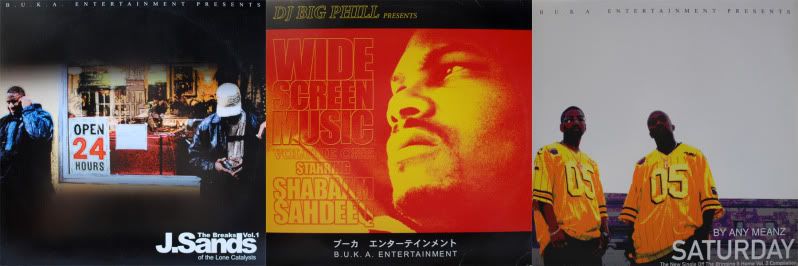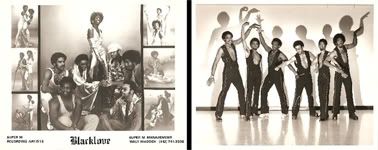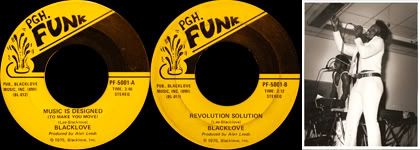The only local legacy that's comparable to that of Pittsburgh's sports teams is that of it's rich musical heritage. And on this Super Bowl Sunday 2011 I'd like to share the story of a guitarist from Pittsburgh by the name of Larry "Butch" McGee. He was born on the Southside and raised in the Hill District by a single mother with a family of twelve children. His infatuation with the guitar began with Elvis Presley's 1957 appearance on the Ed Sullivan Show. Larry was twelve when he got his first guitar. "My mother raised us herself and I knew that she wouldn't be able to send me to school for music, or pay for me. So I figured I had to learn from what they call the school of hard knocks, in other words from any source that I could. And this has been my philosophy or strategy since I was a kid. So anybody that was great or good, I drew upon them and studied them. It wouldn't just be people on guitars. I'm inspired by Herbie Hancock and George Duke. They didn't play the guitar. Jocko Pastorious was a bass player. I didn't limit myself as far as who I tried to learn from."
I recorded an interview with Larry McGee five years ago and I explained that I was interested in creating a resource for people to learn about Pittsburgh musicians focusing on the records that they made. There are a ton of Pittsburgh musicians who relocated to New York and LA and became very famous. These people are relatively easy to learn about. What I'm more concerned about are the ones who didn't necessarily "make it." What was going on here locally in Pittsburgh is much more interesting to me than what people from Pittsburgh were doing elsewhere. "I'm glad you said that. A lot of the ones who didn't make it where so great to me. George Benson had just did a record with Quincy Jones called Back on the Block. He invited me to the session, and after that we went back to the hotel where he was staying in Hollywood. Out of the blue he asked me in front of all of the people 'who was the greatest group you've ever seen?' And I said it was the Altairs and he said to the people 'See, I told you.' So that gives you some idea of how some of the people who didn't make it were really great. George Benson's been around the world more times than I can count. He's seen talent."McGee's musical career began in 1962 when he was approached by Benson and William Herdon of the Altairs. The Altairs were a Pittsburgh group who cut a record for Amy Records, which was a label based in New York. That was their first and last recording. McGee replaced Benson who moved on to start another group before leaving Pittsburgh to tour with Brother Jack McDuff.

Donnie Elbert "Your Red Wagon (You Can Push It or Pull It)"
b/w "Never Again" (196? Gateway, 45-761)
Van Harris & the Vanguards "Hey, Hey (Feel Alright)" Pt.'s I & II
(196? ABC, 45-11155)
One of McGee's earliest recording dates was with Donnie Elbert. Elbert was an artist from Buffalo, NY who scored a big Pittsburgh hit in the mid-sixties with "Have I Sinned" on Deluxe Records. The Pittsburgh-based Gateway Records label wound up releasing three singles by Elbert circa 1965. I never knew if the recordings were actually made in Pittsburgh, or perhaps they were just licensed by the label. That is until McGee told me that he played on "Your Little Red Wagon (You Can Push It or Pull It)." This may be my favorite of the six tunes and it's the only side that McGee plays on.
Pittsburgh-based band leader Van Harris hired McGee to back the likes of The O'Jays, Peaches and Herb, The Dells, Chubby Checker, The Drifters, Fontella Bass and Jackie Ross to name a few. Harris assembled a band, Van Harris & the Vanguards, that featured himself on drums, McGee on guitar, David "Sugar" Cain on keys, Donald Jackson on bass, George Green on sax and Jimmy Rodgers on trumpet. McGee speaks very highly of bandmate David "Sugar" Cain. "He used to sing, write songs, play guitar, drums, organ, everything ... way back then. And in my opinion he was like the most talented person I ever met, or played with." The group's only record was "Hey, Hey (Feel Alright)" which was recorded for ABC Records in the late sixties. It's a somewhat obscure record, but not entirely hard to find. For as great as that record is it's kind of strange that it isn't in much more demand.
Lonnie Smith Move Your Hand LP (1969 Blue Note, BST-84326)
Lonnie Smith "Move Your Hand" Pt's I & II
(1969 Blue Note, BN-1955)
Lonnie Smith Drives LP (1970 Blue Note, BST-84351)
McGee's early touring experiences were with Bobby Watley and Winston Walls. In 1969 he went on tour with Blue Note recording artist Lonnie Smith. Lonnie Smith and George Benson had traded back and forth playing on each other's first few LP's. McGee is featured on the albums Move Your Hand and Drives. The title track from the former being an amazing hunk of jazz funk, which was issued as a single. If I'm not mistaken McGee also appears on Smith's Live at Club Mozambique LP, which was shelved for twenty-five years before it's 1995 release. In 1971 Larry replaced Benson once again in Brother Jack McDuff's quartet who he toured with extensively.
Lonnie Smith "Move Your Hand" Pt's I & II
(1969 Blue Note, BN-1955)
Lonnie Smith Drives LP (1970 Blue Note, BST-84351)
McGee's early touring experiences were with Bobby Watley and Winston Walls. In 1969 he went on tour with Blue Note recording artist Lonnie Smith. Lonnie Smith and George Benson had traded back and forth playing on each other's first few LP's. McGee is featured on the albums Move Your Hand and Drives. The title track from the former being an amazing hunk of jazz funk, which was issued as a single. If I'm not mistaken McGee also appears on Smith's Live at Club Mozambique LP, which was shelved for twenty-five years before it's 1995 release. In 1971 Larry replaced Benson once again in Brother Jack McDuff's quartet who he toured with extensively.
Larry McGee Revolution "The Burg (Pittsburgh, Pa)"
b/w "Happy Bicentennial USA" (1976 Boogie Band)
Larry Mcgee & Saxon Sisters
"We're Number One (Super Steeler Disco)" (1980 Boogie Band)
b/w "Happy Bicentennial USA" (1976 Boogie Band)
Larry Mcgee & Saxon Sisters
"We're Number One (Super Steeler Disco)" (1980 Boogie Band)
McGee was still residing in Pittsburgh when he wasn't on the road. The Steelers back-to-back Super Bowl wins in 1975 and 1976 inspired a number of records that were either specifically about the Steelers, or they were what you might call very "Pittsburgh-centric." McGee recorded one of the earliest of these records and in my opinion it's the best one. It's titled "The Burg (Pittsburgh, Pa)" and there's more demand for this record today than there was thirty-five years ago.
"We did a minimum order, so I think there were 500 (copies made). Ralph Cominio, the owner of Asterik Studios, made those provisions for me. He made the arrangements and I paid the bill. We recorded that in the spring after the Super Bowl. I was living in Wilkinsburg. The studio was in Wilkinsburg too. The Boogie Band got together in '74 and we made the record in '76." The Boogie Band was initially the name of the group, but the record is credited to the Larry McGee Revolution on the Boogie Band record label. Larry played lead guitar and sang lead vocals with Lamont "Monty" Ray on rhythm guitar, Joe "Chipper" Gray on bass, Willie "Spiegal" Gay on drums and Keith Stabbler on keys. "All the musicians except Keith played with me regularly for at least two years. I was trying to think of a name for the label and I wanted to name it after one of my groups. That was the current group. The idea of Revolution, I liked that name at the time. It's like we were going through a different phase. Those two things are what inspired me to change the name of the group and use that for the record label."
WAMO and WYEP gave the record significant airplay. "There was a guy named Del King. He was a DJ on WAMO, and the Program Director for a while. He helped me get that on the air and WAMO played it regularly. We were on a TV show in Pittsburgh called Vibrations. It was a local show and the host was Bev Smith. We did 'The Burg' on there. We were scheduled to do the one song and they liked it so much that they asked 'Do you have another song?' But we hadn't rehearsed anything else. I wish I could get that."
In 1977 McGee hit the road with Norman Connor's Starship Orchestra. "When I played with Norman Connors I would double on drums. The first couple of songs, before he comes out, I would play. Very seldom do I do gigs on other instruments. Usually I do that in my own groups." During the stint with Connors McGee was interviewed for a full page feature in the October '77 issue of down Beat Magazine. Bill Milkowski, who wrote the article, refers to the shoe box of photographs that McGee shared with him during the interview. A lot of these photos have survived over the decades and are currently displayed on Larry's Myspace page. In July of '78 McGee received another full page feature in Guitar Player Magazine.
In 1980 the Steelers won the Super Bowl for the fourth time and inspired the sophomore release on the Boogie Band label, which was "We're Number One (Super Steeler Disco)." This was at the height of the Steelers popularity and McGee recalls it selling 10,000 units. Joe "Chipper" Gray was the only Boogie Band/Revolution member who played on this release. The song was co-written by Elizabeth Davis and it featured vocals by Denise and Debbie Saxon. Elizabeth Davis was a permanent fixture in the Pittsburgh jazz scene as she lived above the Crawford Grill since the early fifties. Her songs were recorded by the likes of Dakota Staton, Ramsey Lewis and Nancy Wilson to name a few. Denise and Debbie Saxon were part of the later Lovations line up along with Crystal and Penni Wilson. The collaboration of names involved with this release make it much more significant than your average Steelers record.
"We did a minimum order, so I think there were 500 (copies made). Ralph Cominio, the owner of Asterik Studios, made those provisions for me. He made the arrangements and I paid the bill. We recorded that in the spring after the Super Bowl. I was living in Wilkinsburg. The studio was in Wilkinsburg too. The Boogie Band got together in '74 and we made the record in '76." The Boogie Band was initially the name of the group, but the record is credited to the Larry McGee Revolution on the Boogie Band record label. Larry played lead guitar and sang lead vocals with Lamont "Monty" Ray on rhythm guitar, Joe "Chipper" Gray on bass, Willie "Spiegal" Gay on drums and Keith Stabbler on keys. "All the musicians except Keith played with me regularly for at least two years. I was trying to think of a name for the label and I wanted to name it after one of my groups. That was the current group. The idea of Revolution, I liked that name at the time. It's like we were going through a different phase. Those two things are what inspired me to change the name of the group and use that for the record label."
WAMO and WYEP gave the record significant airplay. "There was a guy named Del King. He was a DJ on WAMO, and the Program Director for a while. He helped me get that on the air and WAMO played it regularly. We were on a TV show in Pittsburgh called Vibrations. It was a local show and the host was Bev Smith. We did 'The Burg' on there. We were scheduled to do the one song and they liked it so much that they asked 'Do you have another song?' But we hadn't rehearsed anything else. I wish I could get that."
In 1977 McGee hit the road with Norman Connor's Starship Orchestra. "When I played with Norman Connors I would double on drums. The first couple of songs, before he comes out, I would play. Very seldom do I do gigs on other instruments. Usually I do that in my own groups." During the stint with Connors McGee was interviewed for a full page feature in the October '77 issue of down Beat Magazine. Bill Milkowski, who wrote the article, refers to the shoe box of photographs that McGee shared with him during the interview. A lot of these photos have survived over the decades and are currently displayed on Larry's Myspace page. In July of '78 McGee received another full page feature in Guitar Player Magazine.
In 1980 the Steelers won the Super Bowl for the fourth time and inspired the sophomore release on the Boogie Band label, which was "We're Number One (Super Steeler Disco)." This was at the height of the Steelers popularity and McGee recalls it selling 10,000 units. Joe "Chipper" Gray was the only Boogie Band/Revolution member who played on this release. The song was co-written by Elizabeth Davis and it featured vocals by Denise and Debbie Saxon. Elizabeth Davis was a permanent fixture in the Pittsburgh jazz scene as she lived above the Crawford Grill since the early fifties. Her songs were recorded by the likes of Dakota Staton, Ramsey Lewis and Nancy Wilson to name a few. Denise and Debbie Saxon were part of the later Lovations line up along with Crystal and Penni Wilson. The collaboration of names involved with this release make it much more significant than your average Steelers record.
Gene Ludwig Now's The Time LP (1980 Muse, MR-5164)
Nathan Davis Faces of Love LP (1982 Tomorrow Int.)
Emmett Frisbee Sound Paintings LP (198? Street Level)
McGee recorded on three local jazz LP's in the early 80's. The juxtaposition of these three albums really show McGee's versatility, just within the jazz genre alone. The first of which is Gene Ludwig's Now's The Time, which was mentioned in the debut I DIG PGH feature in July 2010. "He (Gene) had scheduled Pat Martino and then I took Pat's place." Now's The Time features an all-Pittsburgh line up of musicians, but it was released nationally in 1980 on Joe Fields' Muse Records label. Ludwig is on organ and McGee's on guitar with fellow-Vanguard member George Green on saxophone, Tom Soisson on drums and Kwasi Jayourba on percussion.
In 1982 Nathan Davis released Faces of Love, which was the third project on his Tomorrow International label. It was recorded at Sound Heights Recording Studios in Brooklyn, NY and mixed at Jeree Recording Studios in New Brighton, PA. McGee is featured on guitar along with other familiar Pittsburgh names like James Johnson Jr. and Ron Fudoli. Some of the other names on the album are even more familiar including the likes of Idris Muhammed and Wilber Bascomb.
The last of these three jazz LP's is Emmett Frisbee's Sound Paintings. I can't imagine that this album sounded any less weird upon it's initial release than it does today. It's actually pretty amazing as it's part environmental soundscape and part eighties jazz fusion. It's also a really interesting document of the local jazz scene featuring McGee on guitar along with popular Pittsburgh saxophonist Kenny Blake and other artists who's names may be less familiar.
Bill "I Feel Good With You" b/w "Space Lady"Nathan Davis Faces of Love LP (1982 Tomorrow Int.)
Emmett Frisbee Sound Paintings LP (198? Street Level)
McGee recorded on three local jazz LP's in the early 80's. The juxtaposition of these three albums really show McGee's versatility, just within the jazz genre alone. The first of which is Gene Ludwig's Now's The Time, which was mentioned in the debut I DIG PGH feature in July 2010. "He (Gene) had scheduled Pat Martino and then I took Pat's place." Now's The Time features an all-Pittsburgh line up of musicians, but it was released nationally in 1980 on Joe Fields' Muse Records label. Ludwig is on organ and McGee's on guitar with fellow-Vanguard member George Green on saxophone, Tom Soisson on drums and Kwasi Jayourba on percussion.
In 1982 Nathan Davis released Faces of Love, which was the third project on his Tomorrow International label. It was recorded at Sound Heights Recording Studios in Brooklyn, NY and mixed at Jeree Recording Studios in New Brighton, PA. McGee is featured on guitar along with other familiar Pittsburgh names like James Johnson Jr. and Ron Fudoli. Some of the other names on the album are even more familiar including the likes of Idris Muhammed and Wilber Bascomb.
The last of these three jazz LP's is Emmett Frisbee's Sound Paintings. I can't imagine that this album sounded any less weird upon it's initial release than it does today. It's actually pretty amazing as it's part environmental soundscape and part eighties jazz fusion. It's also a really interesting document of the local jazz scene featuring McGee on guitar along with popular Pittsburgh saxophonist Kenny Blake and other artists who's names may be less familiar.
(198? Dollar Bill, RR-42480)
Lonnie Liston Smith "Star Flower" from the album
Love Goddess (1990 Startrak, STA-4021-LP)
The Bill 45 is another quality project that McGee was involved with in the eighties. You generally hear the B-side of this boogie era R&B masterpiece, but the A-side is pretty great as well. As a matter of fact if anyone got a copy of the limited edition mix that I did with DJ BusCrates a few months ago, The Top Shelf Collectors, then you've heard the B-side already. I've been scratching my head wondering who Bill was for years now and McGee informed me that it's actually William Herdon from The Altairs. The same William Herdon who gave him his very first gig in 1962 replacing George Benson.
McGee went back to school and studied business management at the Community College of Allegheny County. In 1987 he completed the program and relocated to Los Angeles. He created a publishing company and a production company along with partners Joe Caccamise and Alan Walker. In 1990 he co-wrote "Star Flower" which was included on Lonnie Liston Smith's Love Goddess LP. He's featured on the track playing keyboards, guitar, synthesizer bass and percussion. Other projects that Larry was involved with, which were never issued on vinyl, include The Jazz Syndicate featuring Phil Collins, Angela Bofill and Gerald Albright (1998), Norman Connors' Easy Living and Eternity (both released in 2000) and Tom Scott's' New Found Freedom (2002).

Larry McGee Revolution "The Burg" 12" Reissue
(2005 Licorice Soul, LSD-010T)
As I mentioned before, there's more demand for "The Burg" today than when it was initially released in 1976. This is largely because of UK disc jockey Keb Darge who is credited with (re)discovering the record. Darge is probably best known in the U.S. for the Funk Spectrum compilation series that he co-curated along with his stateside record-digging contemporaries DJ Shadow, Pete Rock and The RZA.
Back in September of 2005 I was speaking with jazz drummer extraordinaire Roger Humphries who informed me that Larry was living in LA and he suggested that I go online and look him up. When I went online I discovered that a UK-based label by the name of Licorice Soul was coincidentally reissuing "The Burg" that very week. I'd already seen that the original 45 had been selling for quite a bit of money, which explained all of "The Burg" related phone calls that we'd been getting at Jerry's Records that summer. McGee explains that he never met or spoke to Keb Darge and it was a DJ in the United States who initially contacted him about the record. "He's the one that contacted me first. He wanted to buy all 'The Burgs' that I had and the 'We're Number Ones.' Once we made that deal he connected me with Licorice Soul Records. I was excited. I really felt that the record never had the chance to get the proper exposure."
I was excited too, but kind of disappointed that the reissue and the new interest in Larry's record had gone under the local radar. When the Steelers were going to the Super Bowl in 2006 I thought it would be a prime opportunity to get Larry McGee's story published locally. Unfortunately I wasn't able to make that happen, but five years later the Steelers are going to the Super Bowl AGAIN and I'm in a much better position to publish this myself now. Regardless of whether we win or lose tonight I'm going to be alright. I like the Steelers as much as the next guy, but I've got people like Larry "Butch" McGee who make me proud to be where I'm from. The Burg (Pittsburgh, Pa).
Visit I DIG PGH on YouTube to check out selections from the Larry "Butch" McGee discography: www.youtube.com/user/idigpgh
(2005 Licorice Soul, LSD-010T)
As I mentioned before, there's more demand for "The Burg" today than when it was initially released in 1976. This is largely because of UK disc jockey Keb Darge who is credited with (re)discovering the record. Darge is probably best known in the U.S. for the Funk Spectrum compilation series that he co-curated along with his stateside record-digging contemporaries DJ Shadow, Pete Rock and The RZA.
Back in September of 2005 I was speaking with jazz drummer extraordinaire Roger Humphries who informed me that Larry was living in LA and he suggested that I go online and look him up. When I went online I discovered that a UK-based label by the name of Licorice Soul was coincidentally reissuing "The Burg" that very week. I'd already seen that the original 45 had been selling for quite a bit of money, which explained all of "The Burg" related phone calls that we'd been getting at Jerry's Records that summer. McGee explains that he never met or spoke to Keb Darge and it was a DJ in the United States who initially contacted him about the record. "He's the one that contacted me first. He wanted to buy all 'The Burgs' that I had and the 'We're Number Ones.' Once we made that deal he connected me with Licorice Soul Records. I was excited. I really felt that the record never had the chance to get the proper exposure."
I was excited too, but kind of disappointed that the reissue and the new interest in Larry's record had gone under the local radar. When the Steelers were going to the Super Bowl in 2006 I thought it would be a prime opportunity to get Larry McGee's story published locally. Unfortunately I wasn't able to make that happen, but five years later the Steelers are going to the Super Bowl AGAIN and I'm in a much better position to publish this myself now. Regardless of whether we win or lose tonight I'm going to be alright. I like the Steelers as much as the next guy, but I've got people like Larry "Butch" McGee who make me proud to be where I'm from. The Burg (Pittsburgh, Pa).
Visit I DIG PGH on YouTube to check out selections from the Larry "Butch" McGee discography: www.youtube.com/user/idigpgh










